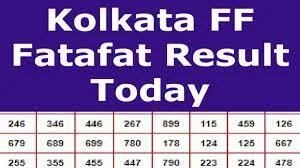The auto industry is preparing for yet another round of price increases as the transition to BS6 phase-2 approaches. Industry insiders claim that this time the price increases will range from 2 to 4 percent, or around ₹15,000 to 20,000, depending on the make and model.
Even manufacturers of commercial vehicles are declaring price increases of about 5%, while firms making passenger cars such as Honda, Maruti Suzuki, Kia, Mahindra, MG, Tata Motors, and others are already planning the size and timing of the rise.

Everything about Price Hike because of BS6!
According to Rajeev Chaba, president and managing director of MG Motor India, “Price rises are happening as we speak on account of BS6 phase II and based on the launch calendar Automakers have already started doing it.” On Tuesday, businesses including Kia and Tata Motors announced price increases. For Kia, the increase is approximately 2.5% for its Seltos, Sonet and Carens model lines, which are RDE-compliant and compatible with E20 fuel.
Despite the firm having yet to formally publish the details of the rise, dealer sources claim that M&M has already hinted at a price increase of almost ₹20,000 across its spectrum. While several Maruti models and variants have already made the switch to RDE and E20 compliance specifications, dealer sources predict that price increases for the others would be in the range of 2-4%.

The shift to BS6 phase II will result in price increases starting in April for the other models, despite the fact that Honda has just introduced its new City, according to company executives. As for Tata Motors, its passenger vehicle line already made the switch to BS6 Phase II in February, despite the company’s announcement on Tuesday of a price increase of up to 5% on its commercial vehicle line.
A Tata Motors spokeswoman stated that “part of the cost escalation coming out of this regulation change has partially been passed on in the price increase announced in February approximately 1.2% hike and the remaining portion may be carried on in the next price hike.”

In addition to Tata Motors, Ashok Leyland is also considering a wave of price increases, though it has not yet made a decision regarding timing, according to a company representative. Even though the majority of these cars are already RDE compliant, premium automobile manufacturers will see the biggest price increases.
Forex and input costs are the culprits in the luxury market. For instance, Mercedes Benz India is increasing prices by up to 5% starting on April 1 as a result of foreign exchange and input expenses.
“Our vehicles are already BS6 phase II certified, thus this will not result in a price rise. We wish to limit any cost transfer to the consumer until it is absolutely necessary, so we are continuously monitoring the situation in regard to the exchange rate, material, and transportation cost inflation” said Naveen Soni, president of Lexus India.








